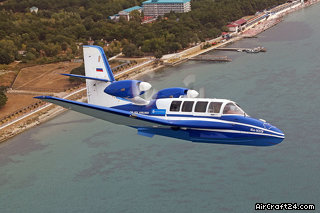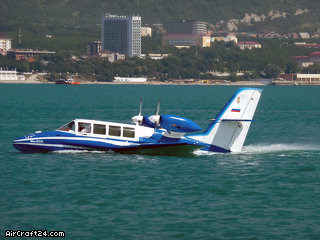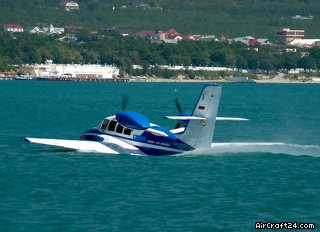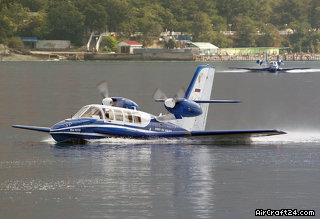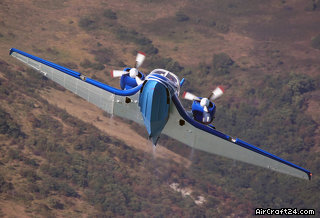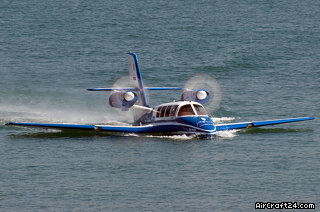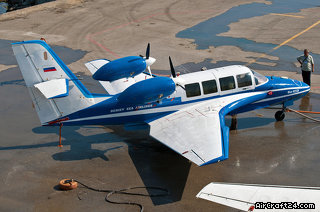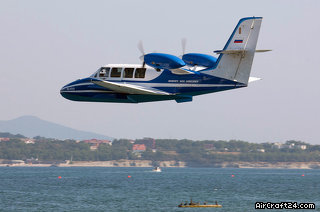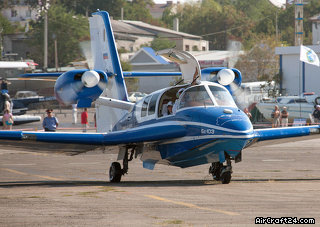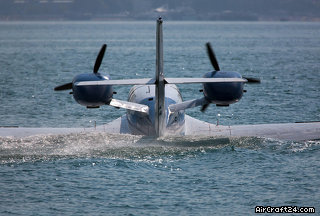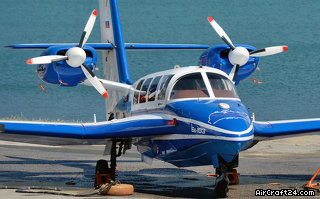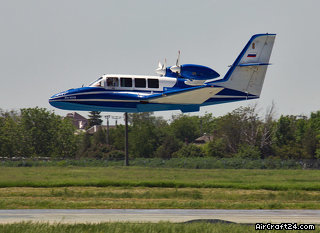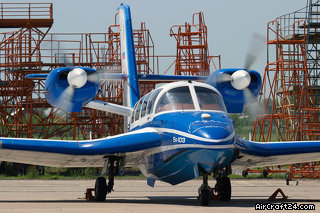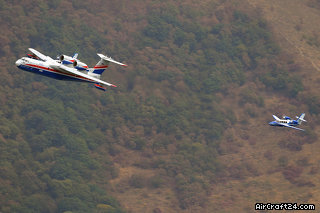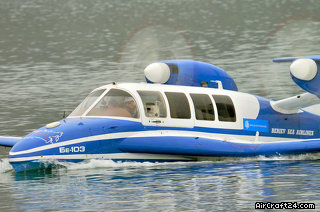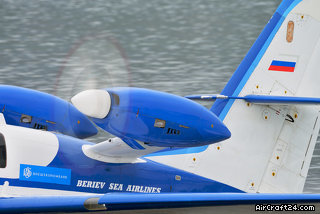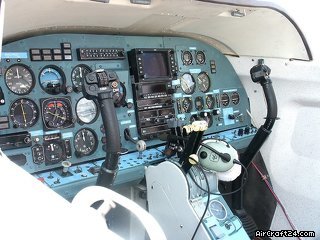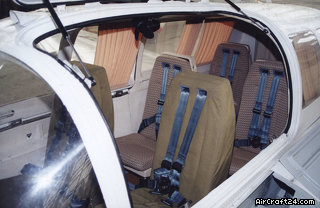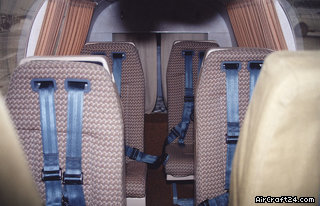| |
Beriev BE-103 amphibious aircraft |
zł 10.287.323
US$ 2.500.000 |
Przegląd
| Informacje podstawowe | | Typ: | Samolot wielośmigłowy | | Typ szczególny: | Wodnosamolot | | Producent: | Beriev | | Model: | BE-103 amphibious aircraft | | Rok produkcji: | 2022 | | Cechy charakterystyczne: | Certyfikat IFR
Sprzęt IFR
Wpisany do rejestru handlowego
Standard JAR-OPS 1 | | Lokalizacja: | Rosja, Moscow, ZIA | | Całkowity czas (TTAF): | 1 h | | Cena: | US$ 2.500.000
(~ zł 10.287.323) | | Wszystkie szczególy |
| Sprzedawca |
Aircraft Tools Consulting Ltd.
Presnensky Val st., 27
123557 Moscow
Rosja
Tel.: +7 (495) 769 4242
Tel. kom.: +7 (916) 650 4707 |
| Kontakt do Sprzedawcy |
|
|
|
Szczególy
| Informacje podstawowe | | Typ: | Samolot wielośmigłowy | | Typ szczególny: | Wodnosamolot | | Producent: | Beriev | | Model: | BE-103 amphibious aircraft | | Rok produkcji: | 2022 | | Cechy charakterystyczne: | Certyfikat IFR
Sprzęt IFR
Wpisany do rejestru handlowego
Standard JAR-OPS 1 | | Lokalizacja: | Rosja, Moscow, ZIA | | Całkowity czas (TTAF): | 1 h | | Cena: | US$ 2.500.000
(~ zł 10.287.323) | | Liczba pasażerów: | 5+1 |
| Silnik(i) | | Liczba silników: | 2 | | Producent/Model: | Continental IO-360-ES4 | Continental IO-360-ES4 | | Zasilanie/Moc: | 210 PS | 210 PS | | Śmigło - Producent/Model: | 3-bladed MT-Propeller MT-12 | 3-bladed MT-Propeller MT-12 |
| Opis/Charakterystyka silnika | Powerplant: 2 × Continental IO-360-ES4 fuel-injected Horizontally opposed piston engines, 157 kW (210 hp) each
Propellers: 3-bladed MT-Propeller MT-12, 1.83 m (6 ft 0 in) diameter |
| Zewnętrze | The Be-103 is a mid-wing monoplane, making use of the modified wing roots as water-displacing sponsons. It features an all-moving slab tail and retractable tricycle landing gear for land operations. Its hallmark and most distinguishing design feature is the water-displacing wing, an unusual feature for a seaplane, with three aquaplaning implements (planing step, port and starboard wing trailing edges) which substantially enhance the aircraft's on-the-water stability and seaworthiness.
The Be-103 features include an advanced, blended wing, swept at 22°, with 11-foot (3.4 m)-long fixed leading edge slats, trailing-link main landing gear, and three-bladed MT-12 reverse pitch propellers. Fuel is stored in the wet wings. The aircraft is built from aluminum-lithium alloy with titanium used in high-stress areas. A 30-parameter, five-hour flight data recorder, engine fire-detection systems and an ice detector are also standard, as are hydraulic brakes. However, unlike most modern aircraft, the Be-103 is not equipped with wing flaps.
When flying solo, ballast must be placed near the right front seat due to center of gravity issues. |
| Inspection Status | The Be-103 received its Federal Aviation Administration type certification on 21 July 2003 at the EAA AirVenture airshow in Oshkosh, Wisconsin, where the aircraft had arrived via An-124 airlift. The type certificate was handed over by the FAA's co-chairman of regulations and certification, Nicholas Sabatini. The aircraft is also certified in Brazil, the People's Republic of China, the European Union, and Russia.
On 1 August 2003, FAA Director Marion Blakey visited the Be-103's display area at the exhibition in order to familiarize herself personally with the aircraft and to meet representatives of the developer, manufacturer and Air Register.
The obtaining of FAA certification allows official sales of the Be-103 to begin in the US and Canada. After the exhibition, the first production Be-103 aircraft were officially handed over to its American dealer, Kent Linn of Sky Manor Airport in Pittstown, New Jersey. Domestic and international market demands (until 2015) were estimated at 520 and 250–330 units, respectively.[citation needed]
The Be-103 was the first Russian aircraft to be in the "Normal" category by the FAA. and along with the Dornier Seastar is the only twin-engine amphibian currently in production. |
Zdjęcia
Kontakt do Sprzedawcy
|


 more languages...
more languages...
